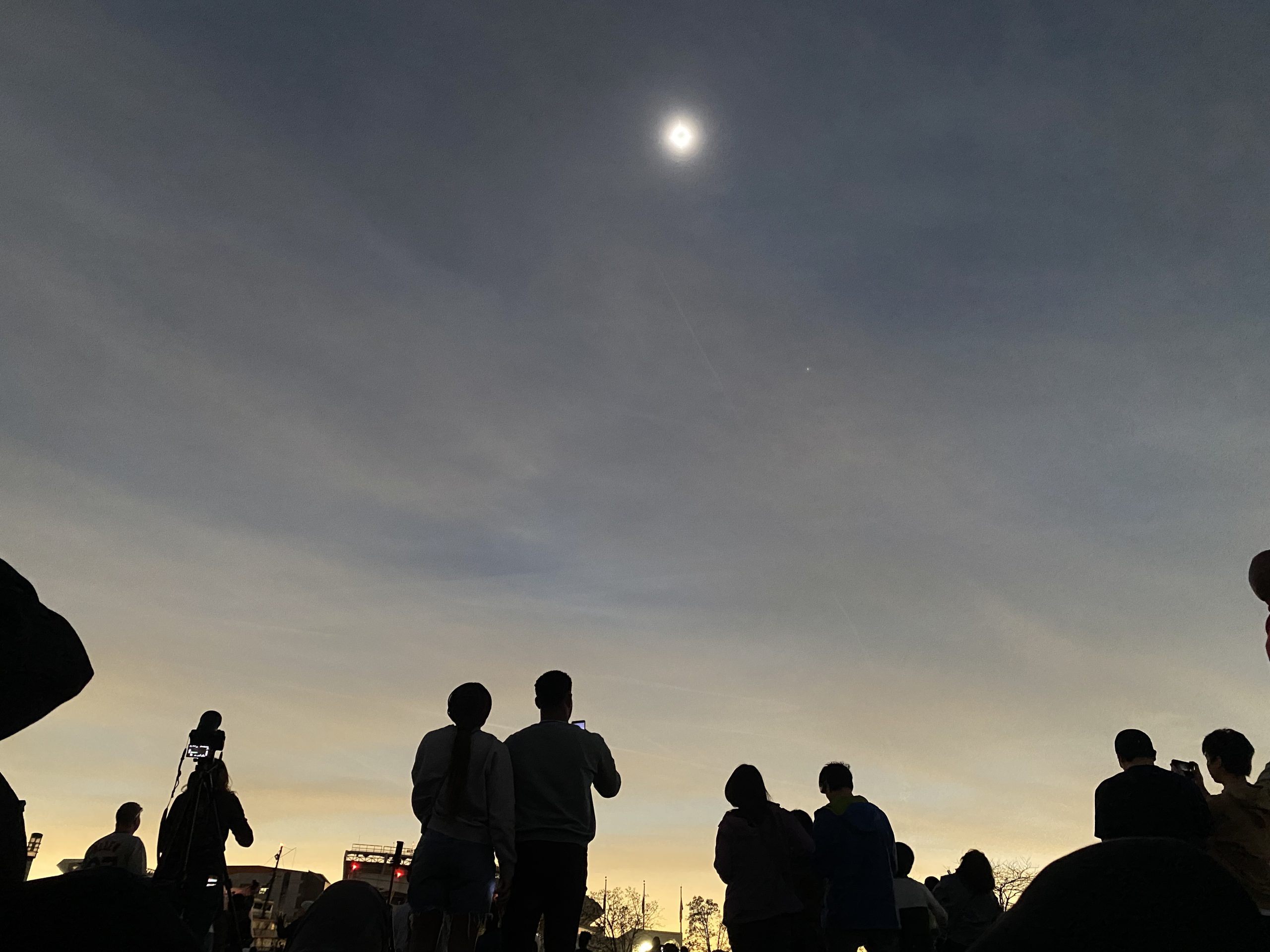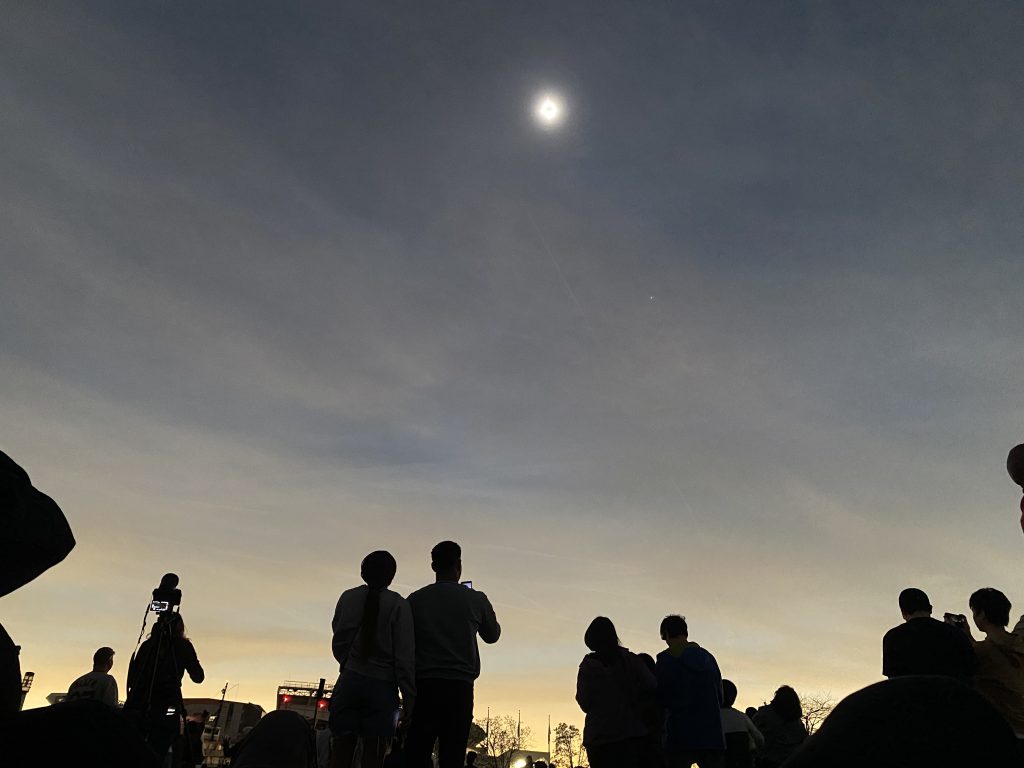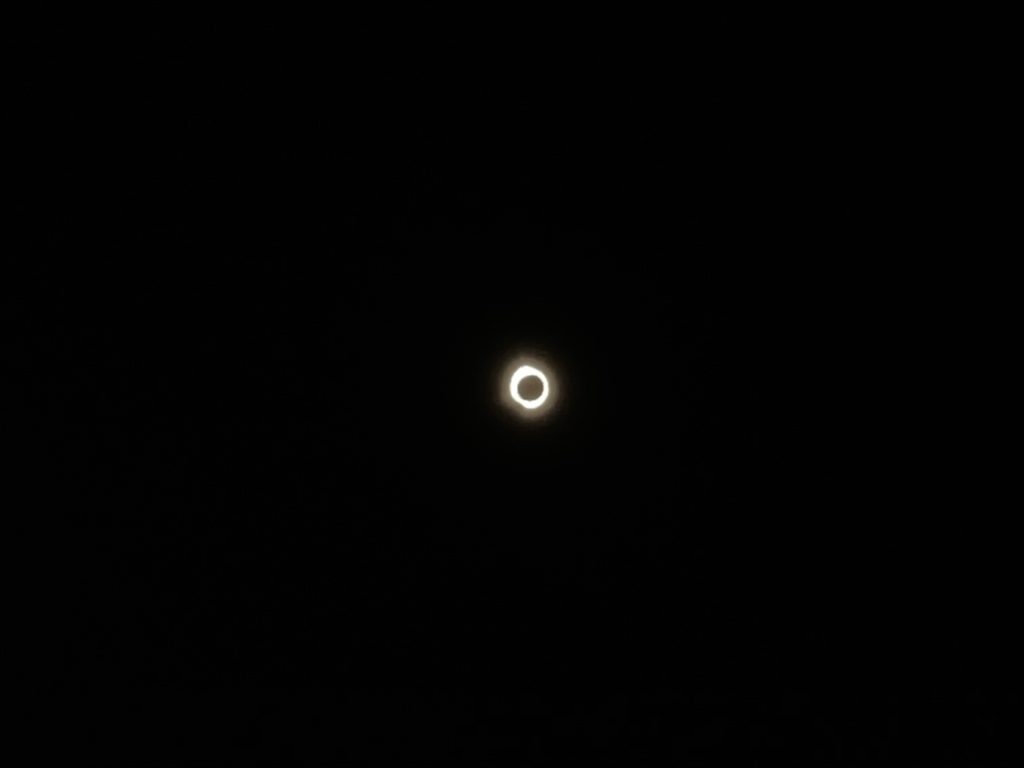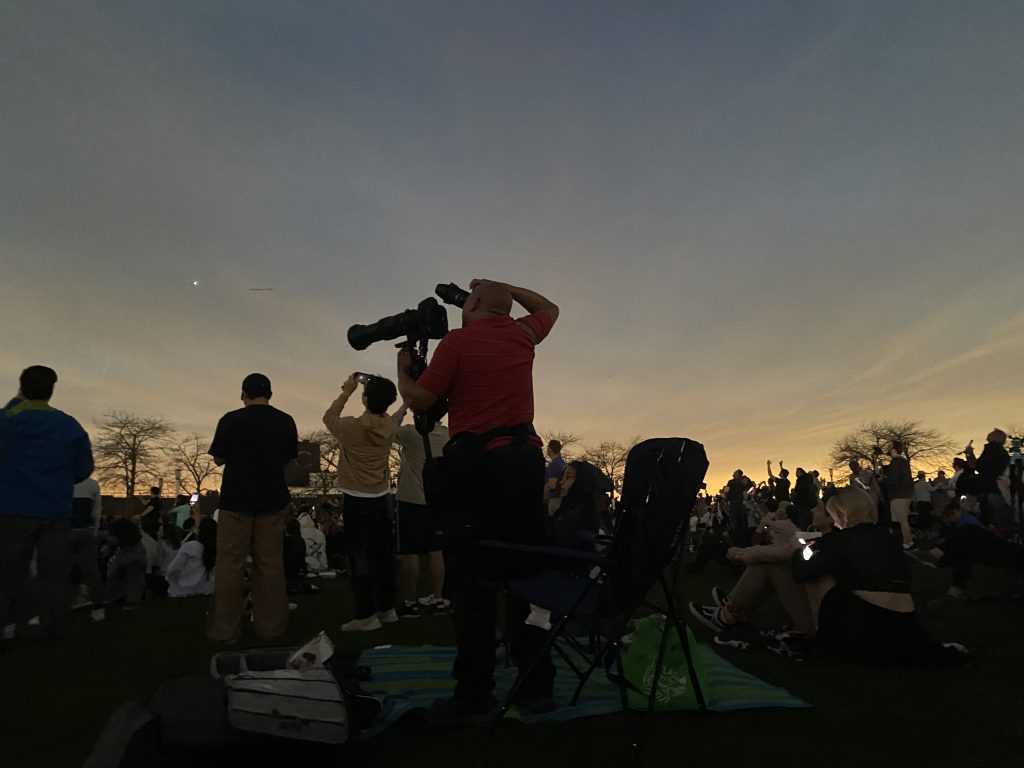Cheers commenced as the sliver of sun shining behind the moon disappeared and a soft rendition of The Beatles’ “Here Comes the Sun” began playing through the speakers surrounding the lawn at the Great Lakes Science Center. The 2024 North American solar eclipse had reached totality in Cleveland, Ohio.
Solar eclipses occur rather regularly, but they do not reach totality everywhere. Totality occurs when the moon directly covers the sun’s path, and a ring of light becomes the sole projection of the sun in that specific location. Thus, a full eclipse can only be seen when in the direct path of the shadow of the sun and the moon. Most people will not see a total eclipse frequently, unless they travel.
The April 8 North American solar eclipse followed a path up the United States. Beginning in Radar Base, Texas, totality was visible through Caribou, Maine. Having had the opportunity to travel to Cleveland, one of the totality destinations, I observed the 3.5-minute experience in full.
This performance began with the moon taking an initial chunk out of the sun. As the moon quickly passed over the sun, the sun’s crescent shape grew smaller and smaller, similar to the phases of the moon. The sky also faded from a bright light blue to a burnt orange, mimicking a sunset. Once the sun disappeared through my protective glasses, I removed them, and cheers filled the science center lawn. As the totality submerged Cleveland into a night sky, music and strong emotions filled the air.
One viewer exclaimed, “Look at her go!” Another simply remarked, “I literally have a tear.”
Laying down in the grass, looking up at the sun, all I could describe was a feeling of wonder and curiosity. I wondered how research identified this phenomenon and traced its route. I wondered how each crevice of the city could admire the same beauty. I wondered how such an experience had the power to unite an entire city. Of course, I was not present at the other locations of totality, but I can only imagine the unity garnered at those destinations. During an already busy weekend for Cleveland—the NCAA Women’s Final Four and MLB’s Cleveland Guardians’ opening game—residents and tourists alike gathered to witness an astronomical event, set to return to Cleveland in 420 years. I would certainly consider this a once-in-a-lifetime experience for the city.
The next solar eclipse to touch the United States will take place in 2044. While that is not too far ahead, this eclipse will take on a completely new path. Hence, such experiences are rare and rather special.









Comments are closed.